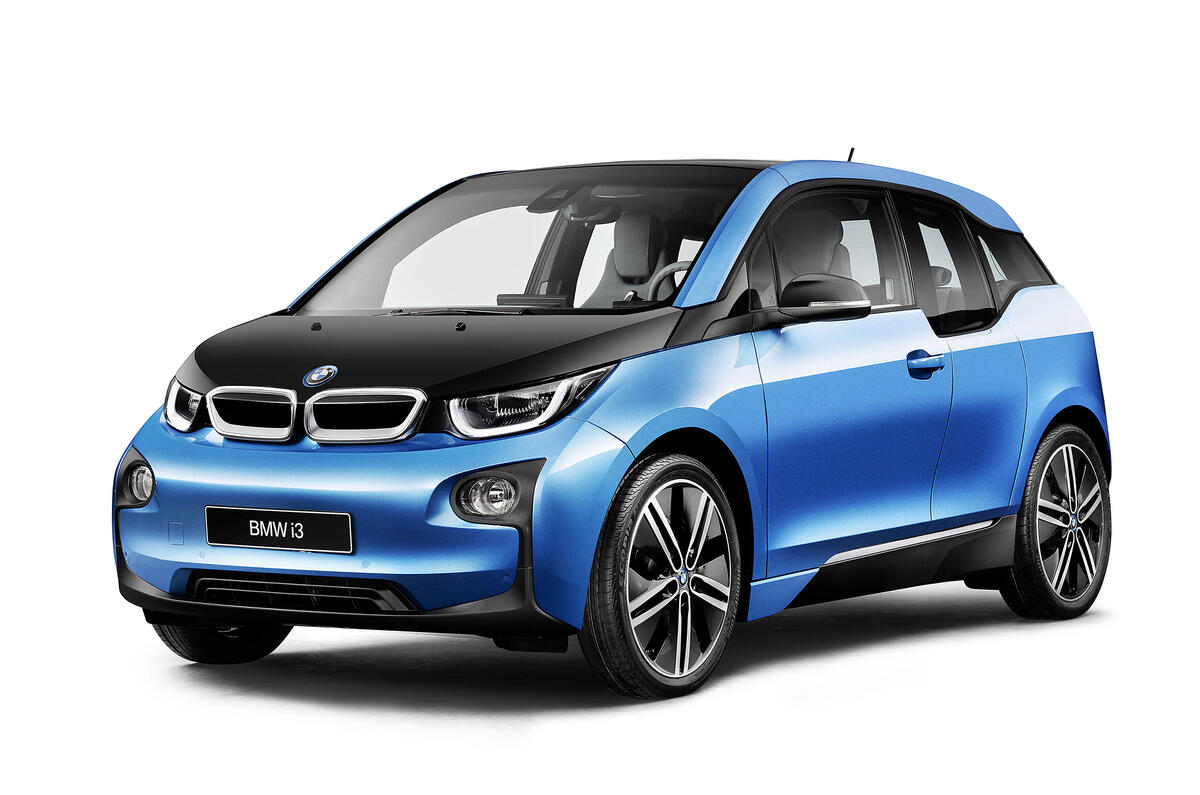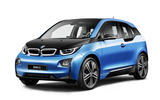The BMW BMW i3 will get a new battery option from July, which the car maker claims extends the official range of the five-door electric hatchback from a claimed 80-100 miles, to 195 miles.
Read our BMW i3 94Ah review here
The new Samsung lithium ion battery will also be fitted in the i3 Range Extender model. This gives the petrol-electric hybrid an official overall range of up to 276 miles with a full charge and full, nine-litre tank of fuel. However, BMW says the range of the fully electric i3 is realistically 125 miles with the air-con or heater on. No real-world figure is given for the Range Extender.
Existing owners of i3s can have the new 94Ah/33kWh battery retrofitted because it retains the same dimensions as the existing 60Ah//25kWh unit.
After the Government's £4500 grant, the new i3 will cost £27,830 as a pure electric vehicle, and £30,980 in Range Extender form. The current i3 and i3 Range Extender cost £26,480 and £29,630 respectively.
The new battery is 50kg heavier than its predecessor, and this has slightly affected acceleration. The new i3 has a 0-62mph time of 7.3sec, and 8.1sec for the i3 Range Extender, making them 0.1 and 0.2sec slower than before. The top speed of both models is limited to 93mph.
With 33kWh of electrical energy when fully charged, the new battery provides 11kWh more than the existing unit.
BMW says a new 11kW charging system allows the new battery to be charged in two hours 45 minutes using a high-powered charger. This is the same time it takes for the older battery at a maximum charging current of 7.4kW.
On standard mains electricity at 2.8kW, the charging times are put at 10 hours for the i3 and eight hours for i3 Range Extender.
BMW says changes to each of the 96 individual cells that make up the i3’s new battery, including higher levels of electrolyte and new materials, havebrought about the considerable increase in energy storage capacity.
















Join the debate
Add your comment
Fair play to BMW for actually
Dog
Awkward?
You are being too kind. It is plain ugly.
Germany is useless at styling motor vehicles nowadays.
Awkward?
You are being too kind. It is plain ugly.
Germany is useless at styling motor vehicles nowadays.
According to Honest John
Citytiger wrote: Real world
HJ only lists the 'combined' hybrid figure for plug-in vehicles, which is an absurd creation in the first place. Plug-in hybrids behave differently in fuel consumption to other cars and trying to capture that with a single figure is an exercise in futility.
If you want a sensible reflection of economy you have to look at the electric-only efficiency (kWh/100km or Wh/Mile) and the efficiency after the motor kicks in as well.